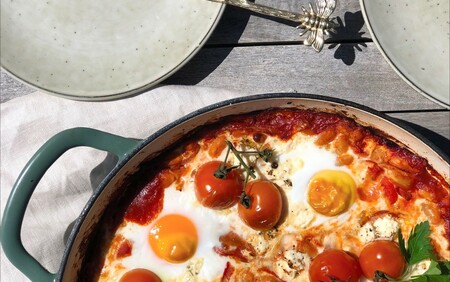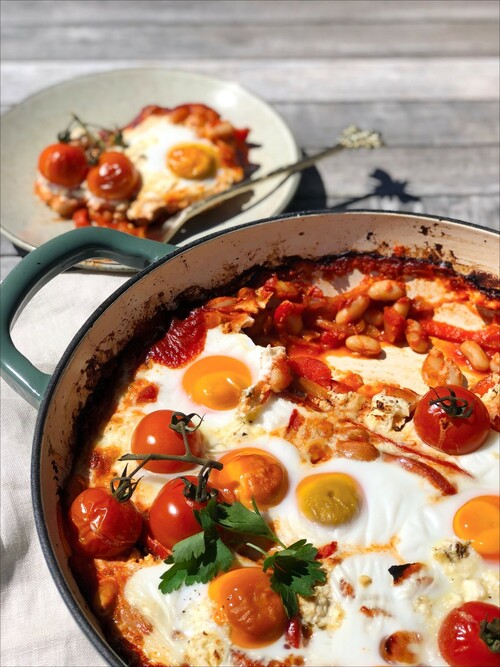
Vegetarian diets while trying to conceive – friend or foe?
Dietician Wendy Fedele shares her insights into the benefits of plant-based diets, as well as some considerations to plan for.
Vegetarian diets are becoming increasingly common, as people become more conscious of the impact of diet on their health – and the environment. But the question is, “How do they stack up when it comes to your fertility?”
At first glance, plant-based diets tick some big fertility nutrition boxes – if based mostly on whole foods like vegetables, fruits, grains, beans and legumes, nuts and seeds, these diets tend to be high in fibre and an excellent source of antioxidants and polyphenols to help protect our reproductive cells from oxidative stress and inflammation.
They’ll also naturally be low in (or lacking) animal proteins – namely meat. While we don’t need to avoid red meat when trying to conceive, research does support a lower intake (and especially of processed meats), and this is a key feature of the Mediterranean diet and the Profertility diet – Two eating styles that research has shown to be beneficial for fertility generally and in the IVF context.
A very large and well-known study, called the Nurses’ health Study II, also showed that replacing just 5% of animal protein with plant-based protein was associated with a more than 50% lower risk of ovulatory infertility.
So are there any risks to a Vegetarian diet while you’re trying for a baby? Well after reviewing the evidence, The American Academy of Paediatrics concluded that well-planned vegetarian and vegan diets are suitable at all life-stages, including pregnancy and breastfeeding.
The “Well planned” part is the key here though, as research shows that women following plant-based diets, particularly Vegan diets, are at risk of not meeting the recommended intakes for several nutrients that are critical for fertility and during pregnancy, such as iron, zinc, iodine, calcium, Vitamin D, Vitamin B12, and Omega 3 fatty acids.
While it’s a great idea to check in with your friendly dietitian for a nutrition review to ensure you’re meeting nutrient needs.
Some things to be mindful of if you are following a plant-based diet while trying to conceive are:
Variety of protein sources
Ensuring you include a variety of protein sources, such as beans and legumes, soy-based food, nuts and seeds, and if you include some animal foods eggs and dairy. This will provide essential amino acids needed for all stages of reproduction, and these foods are also great sources of important fertility nutrients that can be harder to obtain on plant-centric diets, such as iron or zinc.
B12
If you don’t include any animal derived foods like eggs and dairy on a regular basis, chat to your dietitian about B12 supplementation, as this is only found naturally in animal foods
Omega 3
Unless you’re pescatarian, consider adding an Omega 3 fatty acid supplement to meet your EPA/ DHA fatty acid needs to support fertility and pregnancy needs,as we get these from oily fish like salmon, sardines, mackerel, herring and trout.
Iodine
Plant-based diets are more likely to be low in iodine, which is a critical for thyroid function to support fertility and maintain a pregnancy, and inadequate amounts can also impact the cognitive health of your baby in pregnancy. It’s therefore really important you’re taking the recommended 150mcg of iodine, usually as part of your prenatal multivitamin, when trying to conceive (unless contraindicated – e.g with certain thyroid conditions), and consider using iodised salt. Bread, dairy, eggs, seaweed are other vegetarian foods that provide iodine.
Dairy
Aim for 2-3 serves of dairy daily to help meet your preconception calcium needs. If avoiding dairy, use calcium fortified plant-based alternatives like calcium fortified soy milk and include other plant-based calcium foods like tofu, beans and legumes, tahini , chia seeds, kale, broccoli, almonds, bok choy, dried figs and oranges
Iron
Include plant-based iron rich foods in most meals (such as beans and legumes, tofu and tempeh, nuts and seeds, wholegrains, dark leafy greens – and pair with Vitamin C rich foods to help increase the absorption as we don’t absorb plant-iron as well as animal derived.
If you do include some animal products, aim to eat eggs regularly. Often referred to as nature’s multivitamin, eggs contain myriad fertility supporting nutrients that can be otherwise tricky to obtain on low animal protein diets, such as iodine, selenium, B12, Vitamin D, they’re one of the few non seafood sources of Omega 3 fatty acid DHA. They’re also one of the best sources of choline, a super important nutrient that helps reduce the risk of neural tube defects and is involved in baby’s brain development, with 2 eggs providing around 50% of your daily needs! But remember, no egg-white omelettes, you have to eat the yolk to reap the benefits!
My Mediterranean style Baked Eggs with white beans is an excellent (sorry!) way to meet your choline needs while trying to conceive! If you’re continuing to use this recipe while pregnant, ensure your eggs are well cooked – no runny yolks. And if you don’t eat eggs, it’s still delicious with just the beans.
Tomato and Capsicum Baked Eggs with Cannellini Beans
Ingredients
- 1 large onion – thinly sliced
- 3-4 garlic cloves – thinly sliced or minced
- 1 large capsicum – seeds removed and thinly sliced
- 1 teaspoon of ground cumin
- 1 teaspoon paprika
- 1 teaspoon coriander powder
- Salt and pepper to taste
- 4 – 5 tomatoes (vine ripened will usually have more flavour) OR can use 1BPA free tin of tomatoes
- 1.5 tablespoons of tomato paste
- 1 tsp sugar
- 8 eggs
- 2 x 400g tins of BPA free Cannellini beans drained and rinsed thoroughly (or even better if you make from dried!)
- Optional (but delicious!): crumbled fetta
- Optional: chopped fresh coriander to serve
Directions
- Start by pre-heating your oven to 200 degrees Celsius
- Next, heat a large, oven-proof pan over a medium-low heat. Add your onion and capsicum, cooking slowly and stirring frequently, until softened. Add garlic and cook for another 1-2 minutes, then add in your spices – ground cumin, paprika and coriander powder - and cook for another minute
- Pour in your tomatoes, tomato paste, sugar, salt and pepper (start with less – you can always add more later if you need) and cannellini beans and simmer for about 10 mins/ until the sauce has thickened.
- Crumble over your fetta, if using, and then gently crack your eggs into the pan over the tomato/capsicum mixture, season your eggs with a tiny bit of salt/pepper.
- Transfer the pan to the oven and bake until the eggs are just set, ~7-10 minutes, sprinkle over fresh coriander and serve!
YUM - Share a photo of your cook-up with #BeforeBaby2023!
